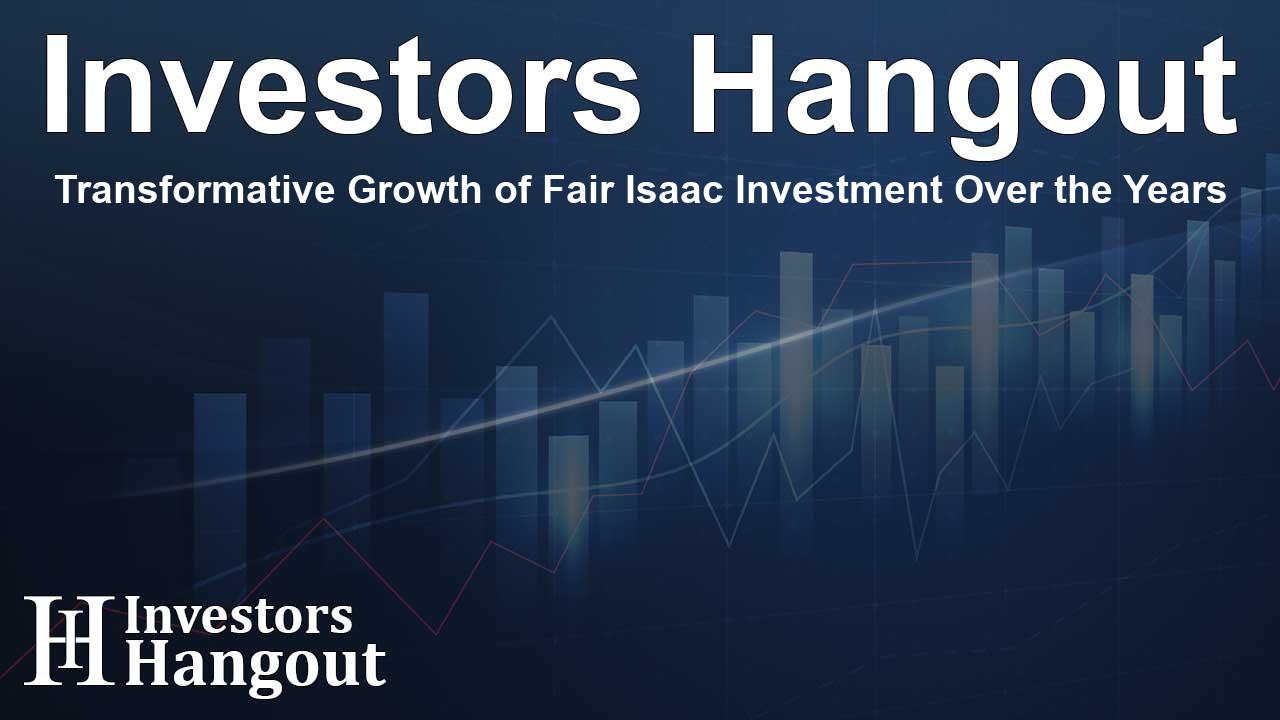Transformative Growth of Fair Isaac Investment Over the Years

Transforming Investment Returns: A Decade in Review
Investing can be a powerful tool for wealth creation, and Fair Isaac (NYSE: FICO) exemplifies this perfectly. Over the last decade, FICO has consistently outperformed the broader market, achieving an impressive annualized return of 33.54%. In this article, we will delve into the journey of investing in Fair Isaac and how it could have significantly impacted your portfolio.
Investment Growth Over Ten Years
Imagine if you had purchased $1,000 worth of FICO stock ten years ago. Based on the current price of $1,598.32, that initial investment would have blossomed into a remarkable $17,569.75 today. This growth illustrates the astonishing effect that compounded returns can have on an investment over time.
The Impact of Compounding Returns
Compounded returns are often referred to as the eighth wonder of the world, and for good reason. The longer money is invested, the more it grows, thanks to interest being earned on interest. With FICO's average annual return exceeding the market by 21.01%, investors in this stock have reaped the benefits of compounding at its finest.
Current Market Position and Capabilities
Today, Fair Isaac boasts a market capitalization of approximately $38.37 billion. This robust valuation reflects not only the company's strong performance but also its influential position within the financial services and analytics space. Fair Isaac continues to lead the industry with innovative solutions that support decision-making processes across various sectors.
What Sets Fair Isaac Apart in the Market?
FICO has developed a reputation for excellence in analytics and risk management software. It provides the tools that institutions rely on for risk assessment and fraud detection, thereby maintaining a crucial role in financial stability and customer security. As businesses increasingly rely on data-driven decision-making, Fair Isaac's relevance continues to grow.
The Takeaway for Investors
The journey of FICO serves as a powerful reminder of the benefits of long-term investment strategies. Achieving nearly a 1,800% return over ten years is an extraordinary feat that reflects not only the company's strong performance but also the importance of patience and strategic financial planning.
Frequently Asked Questions
1. How much would a $1,000 investment in FICO be worth today?
A $1,000 investment in FICO ten years ago would be worth approximately $17,569.75 today.
2. What is FICO's market capitalization?
FICO's current market capitalization is around $38.37 billion.
3. How has FICO performed compared to the market?
FICO has outperformed the market by 21.01% on an annualized basis over the past decade.
4. What drives FICO's business model?
FICO's business is driven by providing analytics and risk management solutions to a wide range of industries.
5. Why are compounded returns important for investors?
Compounded returns enable investments to grow exponentially over time, amplifying potential gains significantly.
About The Author
Contact Hannah Lewis privately here. Or send an email with ATTN: Hannah Lewis as the subject to contact@investorshangout.com.
About Investors Hangout
Investors Hangout is a leading online stock forum for financial discussion and learning, offering a wide range of free tools and resources. It draws in traders of all levels, who exchange market knowledge, investigate trading tactics, and keep an eye on industry developments in real time. Featuring financial articles, stock message boards, quotes, charts, company profiles, and live news updates. Through cooperative learning and a wealth of informational resources, it helps users from novices creating their first portfolios to experts honing their techniques. Join Investors Hangout today: https://investorshangout.com/
The content of this article is based on factual, publicly available information and does not represent legal, financial, or investment advice. Investors Hangout does not offer financial advice, and the author is not a licensed financial advisor. Consult a qualified advisor before making any financial or investment decisions based on this article. This article should not be considered advice to purchase, sell, or hold any securities or other investments. If any of the material provided here is inaccurate, please contact us for corrections.
